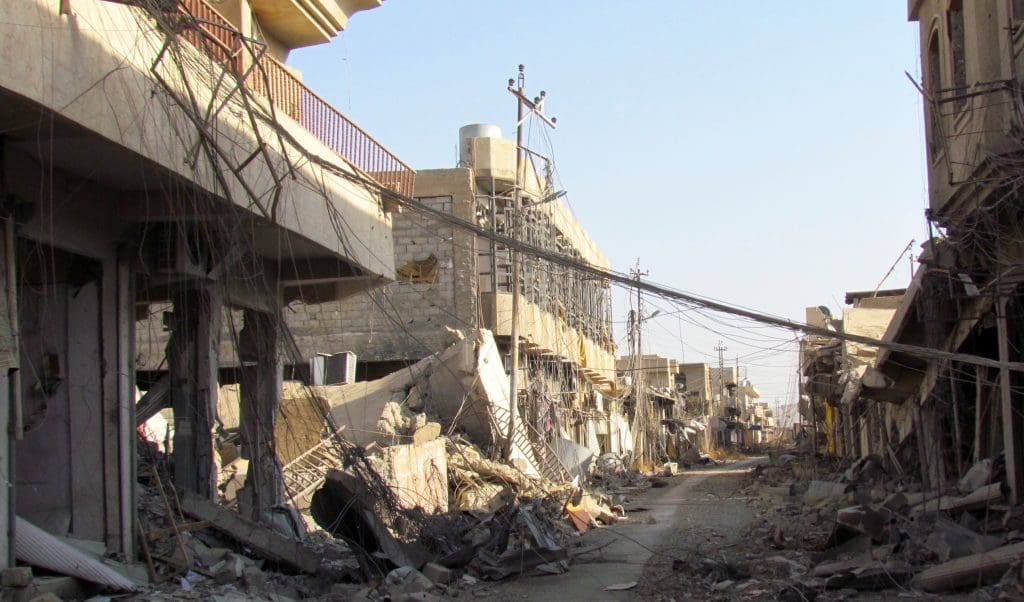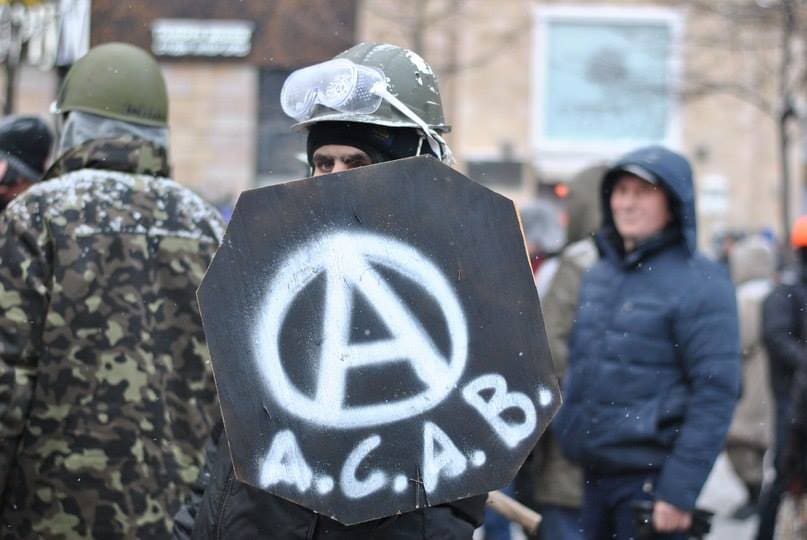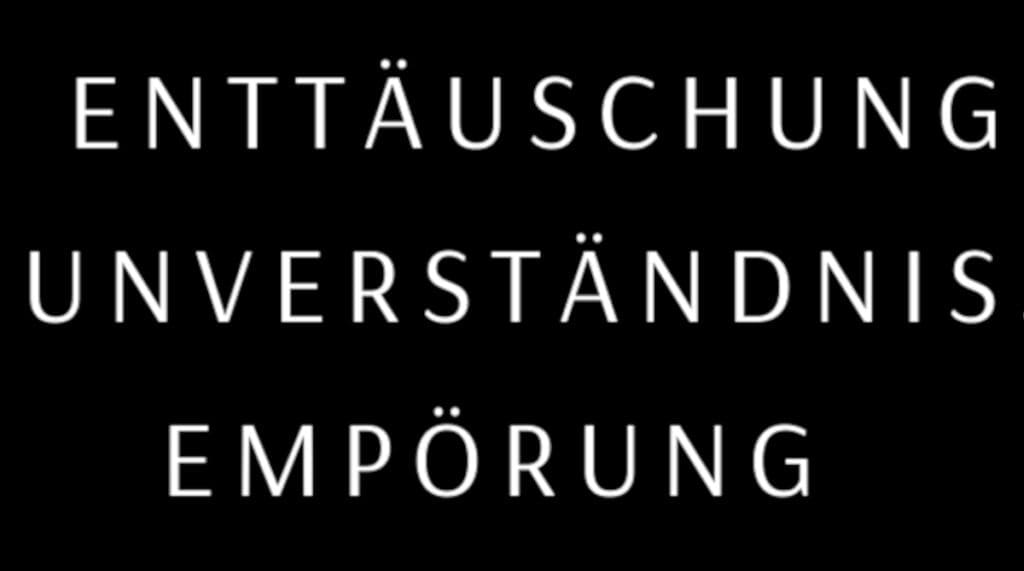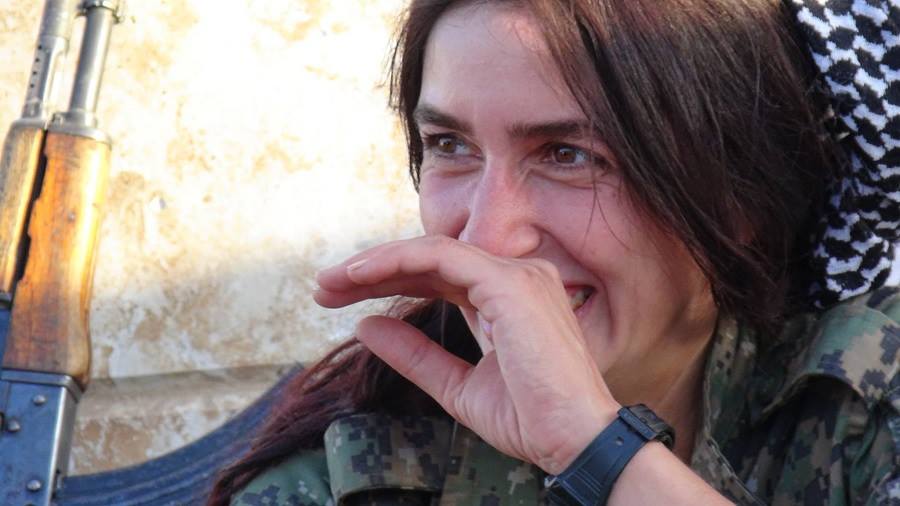AntiNote: As we begin preparing this translation, news is breaking (or rather, initial claims are being made) that ISIS has been defeated in Mosul. While describing this victory as anything but Pyrrhic would be ghoulish, considering its monumental cost in innocent lives, it is also worth contemplating what the “liberation” of Mosul is actually likely to achieve in a more global sense. This article should help us all keep those champagne bottles corked.
The Islamic State: a Materialist Analysis
by La Banda Vaga for ak – analyse & kritik – zeitung für linke Debatte und Praxis, Nr. 623
online version encountered at Kosmoprolet
22 May 2017 (original post in German)
When the “Battle of Mosul” began, it signified for many the beginning of the end of the Islamic State. A broad coalition of Iraqi, Kurdish, and Turkish troops is taking part in the as-yet largest military assault on the ISIS “caliphate.” That the provincial capital will be liberated seems certain. And still, no one believes it will bring an end to Islamist terror in the region.
With a military victory over ISIS, indeed some barbaric outgrowths of Islamist terror will have been vanquished, but not its roots. These roots lie in the crisis-generating and marginalization mechanisms of global capitalist society. We hold the view that ISIS, just like Islamism in the region more broadly, should be understood as a reaction to the failure of capitalist modernization generally, and so-called “catch-up development” [nachholende Entwicklung] in particular. Anyone who wants to talk about Islamism, therefore, cannot keep silent about capitalism.
Anyone who wants to talk about Islamism cannot keep silent about capitalism.
The proclamation of the Islamic State in June 2014 did not just come out of the blue, but the pace at which ISIS brought more and more areas under its control thereafter surprised many. The power vacuum that the 2011 withdrawal of US troops from Iraq had left behind was largely responsible for ISIS’s swift and repeated triumphs. First Ramadi fell, then Fallujah, and finally Mosul, which since then has been ISIS’s “capital” in Iraq. By conquering this populous city, ISIS secured not only a larger area of influence, but also access to strategically vital oilfields which would constitute one of their most important economic supports in the coming years. At the high point of their political power in the summer of 2015, ISIS destroyed cultural antiquities, enslaved thousands of women and children and subjected them to organized rape, committed a genocide of Yezidi people, and established a ghastly reign of terror. In time, its terrorist militias were encroaching on the Iraqi capital Baghdad.
How was ISIS’s string of victories against the Iraqi army even possible? The answer is partly that the Iraqi state could at the time barely be considered a state. Long before the ISIS offensive, a serial process of disintegration had already set in, accelerated by the invasion of the US-led “coalition of the willing” in 2003. This led not only to the removal from power of the hitherto ruling Sunni Ba’ath regime under Saddam Hussein, but also to the comprehensive restructuring of the state apparatus in favor of the Shi’a minority brought to power by the West. Unemployment and hopelessness among broad swathes of the population, as well as terror attacks by Islamist groups in the course of an insurgency against the occupation, had the country descending into chaos and civil war even before the withdrawal of US combat troops.
This is the backdrop for a preliminary explanation of the emergence of ISIS: that the fall of the Ba’ath regime led to an expulsion of Sunnis from state and military positions, and that this expulsion provided fertile ground for a civil war between disenfranchised Sunnis on one side and US-empowered Shi’a on the other. Collaboration between former Ba’athist military and secret service members with Islamist terror groups was especially consequential. The growing association between these two groups came to constitute the core personnel around which ISIS was built. This predecessor organization, Al Qaeda in Iraq, was able to co-opt the insurgency and radically “Islamize” the conflict.
But the structural reasons for the conflict run still deeper. The “jihadification” of the civil war in Iraq relied on freighting preexisting material contradictions with an ethnic and religious sectarian character. The dynamic which sowed the ground for the civil war and ultimate collapse of the state was the failure of so-called “catch-up development”—in other words, the failure of capitalist modernization.
The “jihadification” of the civil war in Iraq relied on freighting preexisting material contradictions with an ethnic and religious sectarian character.
During the reign of Saddam Hussein, despite billions of dollars in national oil reserves, adequately-functioning local industry was never developed (with the exception of the oil industry itself). Iraq has (and had) no noteworthy manufacturing industries that could provide the basis for capitalist modernization. Key industries like mechanical and chemical engineering or steel production could never be established. At the moment, only the construction industry is experiencing positive rates of growth—which of course is only thanks to the war damage the country has suffered.
The reasons for this economic failure are multiple. Besides corruption and military spending, the UN embargo from 1991 to 2003 should be noted first as having led to the total crippling of Iraq’s economy. At least as important was, however, that outside Iraq there was never a genuine interest in developing the country after a European or Asian model. Since the 1980s, Iraq was limited to its role as a producer of raw materials. And today, with the ongoing violent conflict, a devastated infrastructure, and a teetering global economy as a backdrop, the future of the country doesn’t look much like it will fulfill the promise of “catch-up development.”
For the time being, Iraq finds itself in a state of complete geopolitical impotence which deprives it of any chance at sovereign economic policy. In a global economic environment being shaped by the worst crisis since 1929, there is no real expectation for development. Because although the central banks, month after month, are “pumping billions of dollars into the economy,” no sustainable growth has been produced. The crisis of capitalism, which had been smoldering since the 1970s and led the global economy to the brink of collapse in 2008, still constrains every national economy. Since the crisis is a structural one, a crisis of capital allocation (caused by the increasingly organic composition of said capital), it is not soluble on a capitalist basis—at least not without a new world war.
Leading states and alliances are therefore compelled to conduct more war simply because they are seeking new investment opportunities. One of the essential aims of the Iraq war in 2003, as Detlef Harmann and Dirk Vogelskamp showed in their 2003 study Irak: Schwelle zum sozialen Weltkrieg [Iraq: Threshold to a Global Social War], was not only the fall of the antagonized Ba’ath regime but also the opening of the Iraqi market. Western capital was hoping to turn Iraq into a new export market and establish a new basis for future economic investment in a heretofore stagnating region. A kind of Marshall Plan for the Middle East was supposed to provide a new spring in the step of a global economy that had been limping for decades, and thus overcome the crisis—following a neoliberal model, of course, meaning at the expense of the population and any possibility for a self-determined modernization of the country.
Since the war, Iraq has remained subject to the mandates of the IMF and other capitalist institutions. Reforms instituted by the Coalition Provisional Authority under Paul Bremer and by the IMF were essential building blocks of the neoliberalization of Iraq. The so-called “100 Orders” stipulated the reduction of the corporate tax to less than fifteen percent, the far-reaching privatization of state operations, and the immunity of foreign contractors. And it was not possible for the Iraqi government to refuse the IMF reform package, in light of the developing humanitarian catastrophe. Therefore it committed to shrink its bureaucracy, reduce state spending, weaken the influence of state banks, and privatize countless state services.
At least for the West, the opening of the Iraqi market was a raging success: imports increased from $2.6 billion in 2003 to a whopping $45 billion by summer 2016. For Iraq, however, this enormous import surplus signified a crippling of domestic production. Ahmed Twaij, writing for Middle East Eye, states the results of these economic policies plainly: “The freeing up of the market destroyed what was left of Iraq’s self-sustainability.” The capitalist reforms led not to a shoring up of the Iraqi economy, but its demolition.
The Islamic State is just another product of capitalist barbarism.
The Iraqi rump state itself has no real options to rebuild relevant forms of production. Not only the manufacturing and service sectors, which should benefit from the high level of education among the Iraqi population, but also agriculture, have all been laid waste. The vast majority of people struggle to survive in peasant conditions, with this hardscrabble existence made yet harder by climate change-induced soil degradation and intensifying water shortages.
Even the oil, for decades Iraq’s central source of economic prosperity, hasn’t been able to endure these developments. As an economy dependent on oil exports, Iraq has taken precipitous drops in oil prices especially hard. A “failed state” like Iraq, in this economic environment and under pressure from powerful interests and their economic doctrines, doesn’t stand a chance of developing.
In this situation, the Islamic State represents (at least for some) an enticing response. It presents itself as a radical alternative to liberal-capitalist modernity in that it is a “fundamentalist” reaction to the insecurity that comes along with capitalist modernization processes—and their failure. It formulates a promise of advancement and recognition for men whose social status is threatened. On the material level, it functions through gang rule, in which the scarce resources of the country are distributed among its own group while the rest of the population gets repressed, exploited, terrorized, or exterminated. In this respect, the Islamic State is just another product of the capitalist barbarism which provides fertile ground for the reign of religious violence—and therefore cannot be fought merely by military means.
La Banda Vaga, February 2017
Translated by Antidote





